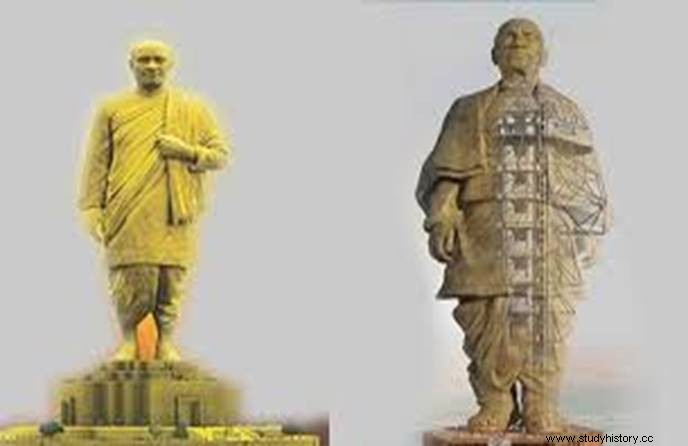
The princely department was very unhappy with the activities of the Bharatpur state. Therefore, the princely department prepared a charge list against Maharaja Brijendra Singh of Bharatpur and these allegations were made on the king - (1) The Maharaja of Bharatpur did not celebrate Independence Day on 15 August 1947 and he openly asked the Indian leaders for the partition of India. Responsible.
(2.) The Maharaja drove 1 lakh Muslims from the state. The Maharaja was pleased that there was not a single Muslim left in his kingdom. (3.) The Maharaja did not take effective steps to provide security to the Bandikui-Agra railway line going through the state of Bharatpur.
(4.) There was no such thing as discipline in the Maharaja's army. (5.) The Maharaja had left no stone unturned in promoting Jatism in the state. (6.) Illegal factory was opened in Bharatpur State to prepare arms and ammunition and arms were being distributed to Jats and Rashtriya Swayamsevaks. (7.) The Maharaja took interest in the activities of the Rashtriya Swayamsevak Sangh. (8.) Pt. Nehru had also informed Patel through his letter dated January 28, 1948 that arms training was being imparted to national volunteers in Bharatpur state.
The Government of India called Bharatpur Maharaja Brijendra Singh to Delhi on 10 February 1948 and after apprising him of the charges collected against him, instructed him to hand over the responsibility of state administration to the Government of India. The Alwar Maharaja and the Prime Minister were put under house arrest in Delhi. That is why the Bharatpur Maharaja was under great pressure. He consented very reluctantly.
On 14 February 1948, by the princely department, S. N. Sapru was appointed as the administrator of Bharatpur State. Colonel Dhillon was appointed as the Chief of Army Staff of the state. The Maharaja's brother Girirajsharan Singh, against whom Nehru had written to Sardar Patel, was deported to England. Lord Mountbatten, the first Governor General of independent India, wanted to deport Maharaja Bharatpur on charges of communal killings and poor administration and send him to the south where he was to be placed under house arrest, but Sardar Patel protected the fate of the Maharaja. P>
The kings of Dholpur and Karauli states adjoining the states of Alwar and Bharatpur were also called to Delhi on 27 February 1948 and were advised that Alwar and Bharatpur should join the union with the state. The four kings accepted this proposal and signed the document of integration on 28 February 1948.
Of. On the advice of M. Munshi, this union was named Matsya Sangh. Since the investigation was going on against Maharaja Alwar and Maharaja Bharatpur, Dholpur Maharaja was made the Rajpramukh of the Sangh and Karauli Maharaja was made the Uprajpramukh. It was duly inaugurated on 18 March 1948.
After the formation of the Matsya Union, Lord Mountbatten appointed a committee of the rulers of Baroda, Gwalior, Nawanagar and Bikaner to investigate against the rulers of Alwar and Bharatpur states, but these rulers refused to investigate their fraternal Maharajas.
On this, representatives of the Government of India were appointed for this work. In the investigation, not only Maharaja Alwar and Maharaja Bharatpur were found innocent, but no charge was proved against Narayan Bhaskar Khare, Diwan of Alwar State. The Government of India declared them all free and did not take any legal action against them.
